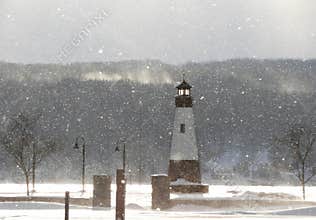Individual Flower Florets On End Of Rays Of Giant Hogweed Plant. Giant Hogweed Heracleum Mantegazzianum Is A Federally Listed Noxious Weed. Its Sap, In Combination With Moisture And Sunlight, Can Cause Severe Skin And Eye Irritation, Painful Blistering, Permanent Scarring And Blindness. Contact Between The Skin And The Sap Of This Plant Occurs Either Through Brushing Against The Bristles On The Stem Or Breaking The Stem Or Leaves. Giant Hogweed Is A Biennial Or Perennial Herb In The Carrot Family Apiaceae Which Can Grow To 14 Feet Or More. Its Hollow, Ridged Stems Grow 2-4 Inches In Diameter And Have Dark Reddish-Purple Blotches. Its Large Compound Leaves Can Grow Up To 5 Feet Wide. Its White Flower Heads Can Grow Up To 2 1/2 Feet In Diameter. Giant Hogweed Grows Along Streams And Rivers And In Fields, Forests, Yards And Roadsides. It Prefers Open Sites With Abundant Light And Moist Soil But It Can Grow In Partially Shaded Habitats, Too. Giant Hogweed Can Thrive In Many Habitats. It Grows Particularly Well In Areas Where The Soil Has Been Disturbed, Such As On Wastelands, Riverbanks, Roadsides And Along Railroads. Its Size And Rapid Growth Allow It To Quickly Dominate An Area, If The Conditions Are Right. The Earliest Recording Of The Plant In The U.s. Is 1917, From Highland Park, New York Outside Of Rochester
ID 810443883610 © Mccrainemercantile | Megapixl.com
Sharing is not just caring, it's also about giving credit - add this image to your page and give credit to the talented photographer who captured it.:
KEYWORDS
apiaceae biennial blindness blistering bristles burning careful carrot danger dangerous detail field fingerlakes florets flower flowers giant heracleum herb herbicide hogweed hollow huge invasive mantegazzianum nefarious noxious nys perennial plant poison rays roadside sap scar scarring stalk stayaway stem tall toxic watchful weed white




































